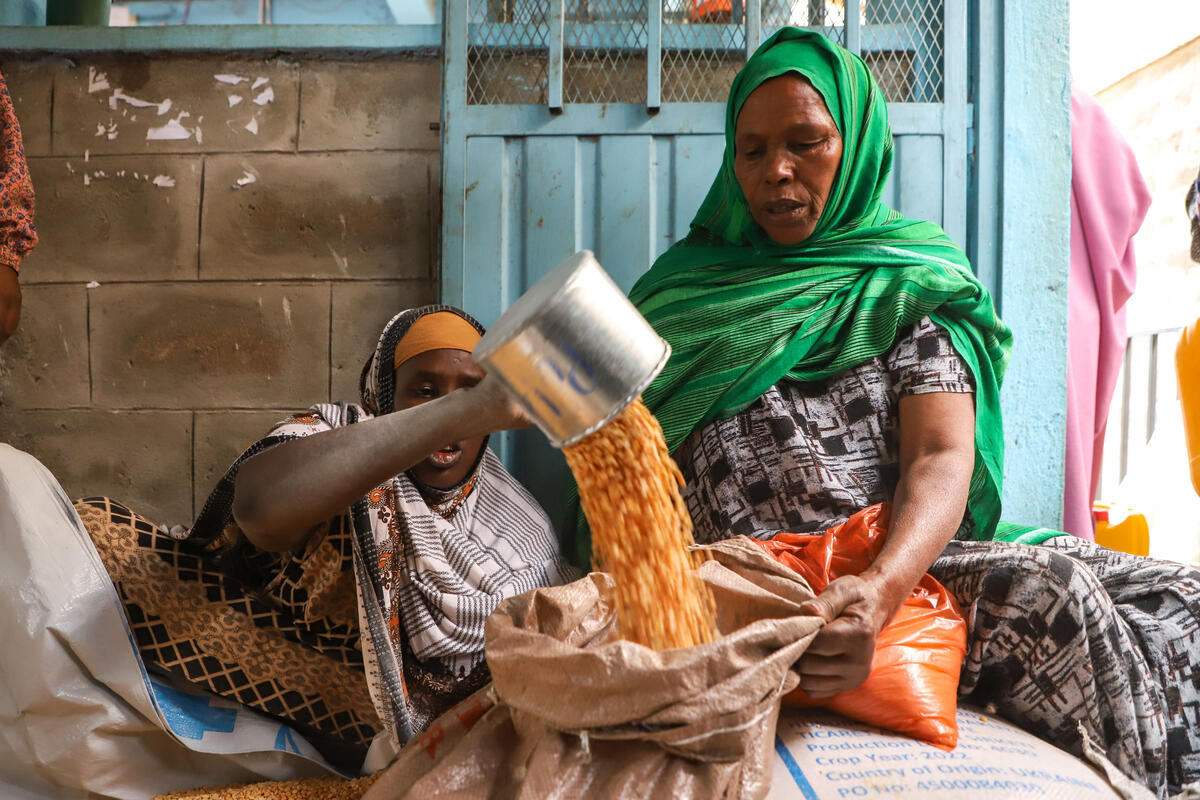"WFP teams and our partners have been working around the clock to ensure we can get food to those who need it most," said Valerie Guarnieri, WFP's Assistant Executive Director. "Food is a lifeline for refugees living in unimaginably hard conditions, and it's a relief that we now have measures in place to resume vital support."
Around 35,000 people who have fled from Sudan to Ethiopia in the last six months urgently require food assistance, while Ethiopia also hosts a further 850,000 refugees mostly from Somalia, South Sudan and Eritrea. WFP distributions will resume in Somali, Gambella, Benishangul Gumuz, Oromia, SNNP and Afar regions, providing refugees with cereals, pulses, vegetable oil and salt. Some will receive part of their entitlement as cash assistance.
The resumption of food distributions for refugees follows major reforms in all camps across the country, including:
- All 24 warehouses in refugee camps are now exclusively managed by WFP;
- Refugees will now be digitally enrolled for support through UNHCR's Global Distribution Tracking Tool;
- Bolstered feedback and reporting systems for refugees, including on-site helpdesks and an anonymous hotline;
- Additional non-government organizations have been recruited and trained by WFP to manage food distributions;
- New and detailed food collection procedures will ensure that refugees know they are receiving the right entitlements every time.
In parallel, WFP is making great progress to test and rollout controls and measures needed to resume food distributions for millions of food insecure Ethiopians as well. This includes working directly with communities to identify and target the most vulnerable people and digitally register them for assistance. It also includes enhanced logistics and distribution mechanisms that allow for more precise tracking right through to each family supported.
Resuming food assistance for refugees is vital. Latest hunger data shows that refugee food security has deteriorated in the past months, leading to increased malnutrition, heightened tensions around the camps and even unsafe journeys back across the border.
Notes for the editor:







